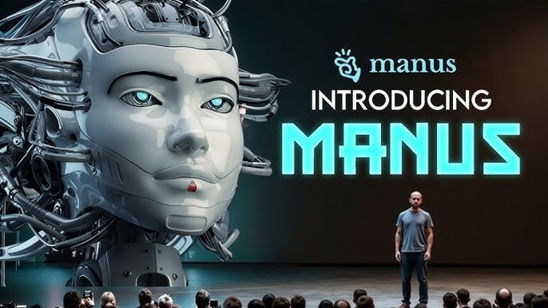
Introduction
This Article discusses the recent release of Manus, described as the world’s first fully autonomous AI agent from China. Its also compares this release to the earlier launch of Deep Seek, positioning it as another significant moment in AI development. Manus is introduced as an AI agent capable of performing complex tasks autonomously, from resume screening to financial analysis, and examines its implications for the AI industry, particularly in relation to open-source development.
Manus AI Overview
Manus is presented as an autonomous AI agent that can perform various tasks without human intervention. Its capabilities include:
- Reading and screening resumes
- Conducting property research with multiple criteria
- Performing stock correlation analysis
- Building and deploying websites
- Creating content like biographies and courses
- Accessing APIs and data sources
The video shows demonstrations of Manus working through complex tasks by breaking them down into subtasks and executing them systematically in its own Linux-based environment.
Technical Architecture
The presenter highlights several key technical aspects:
- Manus operates on Ubuntu (Linux) in a cloud environment
- It creates project folders with organized subtasks for each assignment
- The system installs required dependencies autonomously
- It uses APIs to access external data and services
- Manus can create, test, and deploy web applications
- It reportedly outperforms OpenAI’s Deep Research on benchmarks
Open Source Implications
A significant point emphasized in the video is that Manus developers plan to open-source some of their models later in the year. The presenter sees this as potentially revolutionary, suggesting that open-source autonomous AI agents might become available before proprietary alternatives gain widespread adoption.
Comparison to Other AI Tools
The comparison Manus to:
- Anthropic’s Cloud Coder, which operates similarly through a command line interface
- OpenAI’s AI agents, which were announced with high pricing ($20,000/month)
- Deep Seek and other Chinese AI models
Economic and Industry Impact
The presenter discusses several potential impacts:
- Job displacement across various sectors
- Disruption to software-as-a-service business models
- The potential for personalized, custom software creation
- Competition with traditional research and information services
The Majority Application Platform (OS)
- Operating System: Manus runs on Linux (specifically Ubuntu)
- Deployment: Cloud-based with its own virtual machine environment
- Interface: Command-line based with natural language instructions
Conclusion
This concludes that autonomous AI agents like Manus represent a significant technological advancement that could reshape various industries. While acknowledging that such changes won’t happen overnight, the presenter suggests these tools will become increasingly important. The presenter encourages viewers to familiarize themselves with Linux, seeing it as the foundation for many future AI developments.
Key Takeaways
- Manus represents a potentially significant advancement in autonomous AI agents
- The planned open-source release could democratize access to powerful AI tools
- Linux-based systems are becoming increasingly important for AI development
- These tools may disrupt traditional software and research industries
- Autonomous agents can break complex tasks into manageable subtasks
- The technology is advancing rapidly with competition between US and Chinese firms


